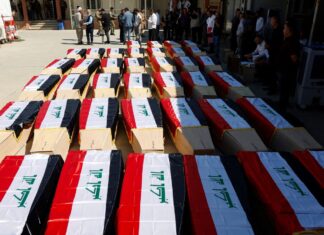By Edmond Y. Azadian
The social unrest sweeping across the Middle East has caught up with Egypt, long considered one of the most stable nations in the region and a cornerstone of US strategic policy in the Muslim world.
As of this writing, the situation is too fluid for observers to make accurate predictions about the outcome of the popular movement, which was unleashed on January 24.
For almost three decades, President Hosni Mubarak ruled Egypt with an iron fist, most of the time under marshal law. Dissent was suppressed and parties enjoying any political support were banned. Mubarak was elected and re-elected term after term and his ossified regime distanced itself more and more away from the sentiments of the masses. Had he groomed his successor before his last term — his regime or a modified version of that regime — could stand a chance of survival. His son, Gamal Mubarak, waited too long in the wings to lead the country. He could have become a more sophisticated leader that could bring a more positive image to Egypt. But recent reports indicate that he is already in London after reading the writing on the wall.









